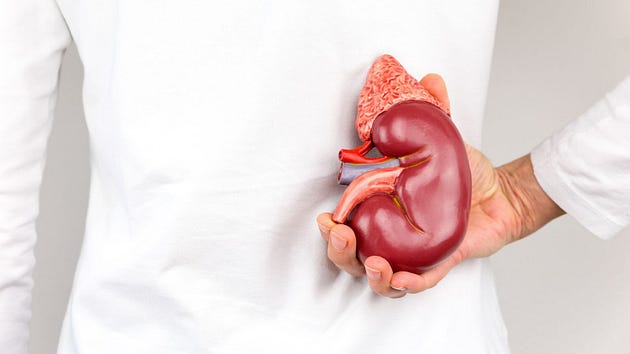Introduction:
Kidney stones are more than just a painful inconvenience; they’re small, hard mineral deposits that form in the kidneys and can cause excruciating pain when they pass through the urinary tract. Understanding what causes kidney stones to form is crucial in preventing their occurrence and managing the associated discomfort. In this blog post, we’ll delve into the intricate mechanisms behind kidney stone formation, shedding light on the factors that contribute to their development.

Understanding Kidney Stone Formation:
The formation of kidney stones is a complex process influenced by various factors, including diet, hydration levels, genetics, and underlying medical conditions. At the core of this process lies the imbalance between substances that promote stone formation and those that inhibit it.
1. Mineral Imbalance:
One of the primary culprits behind kidney stone formation is an imbalance of minerals in the urine, particularly calcium, oxalate, and uric acid. When these minerals are present in high concentrations, they can crystallize and clump together, forming stones. Calcium oxalate is the most common type of kidney stone, accounting for approximately 80% of cases. Other types include calcium phosphate, struvite, and uric acid stones.
2. Dehydration:
Inadequate hydration is another significant factor contributing to kidney stone formation. When the body is deprived of sufficient fluids, the urine becomes more concentrated, increasing the likelihood of mineral precipitation and stone formation. Dehydration can also lead to reduced urine volume, allowing minerals to accumulate and form crystals more easily.
3. Dietary Factors:
Certain dietary choices can predispose individuals to kidney stone formation. Foods high in oxalates, such as spinach, nuts, and chocolate, can increase the risk of calcium oxalate stones. Similarly, a diet rich in sodium and animal protein may promote the formation of calcium-based stones. Additionally, excessive consumption of sugary beverages can elevate the risk of developing uric acid stones.
4. Genetics and Medical Conditions:
Genetic factors can play a role in kidney stone formation, as some individuals may inherit a predisposition to produce certain types of stones. Moreover, underlying medical conditions such as hyperparathyroidism, cystinuria, and urinary tract infections can disrupt the normal balance of minerals in the urine, leading to stone formation.
Prevention and Management:
While the formation of kidney stones can be influenced by various factors, certain lifestyle modifications and dietary habits can help reduce the risk and manage existing stones:
- Stay Hydrated: Drinking an adequate amount of water throughout the day can help maintain urine dilution, preventing mineral accumulation and crystal formation.
- Follow a Balanced Diet: Adopting a diet low in sodium, oxalates, and animal protein while increasing consumption of fruits, vegetables, and whole grains can lower the risk of kidney stone formation.
- Limit Certain Foods: Moderating intake of high-oxalate foods and sugary beverages can be beneficial in preventing certain types of kidney stones.
- Monitor Medical Conditions: Individuals with underlying medical conditions predisposing them to kidney stones should work closely with their healthcare providers to manage these conditions effectively.
Conclusion:
Kidney stones can be a painful and debilitating condition, but understanding the underlying causes of their formation is the first step towards prevention and management. By addressing factors such as mineral imbalance, dehydration, dietary choices, and underlying medical conditions, individuals can take proactive measures to reduce their risk of developing kidney stones. Ultimately, adopting a healthy lifestyle that prioritizes hydration, balanced nutrition, and regular medical monitoring is key to safeguarding against this common urinary tract disorder.
Comments
Post a Comment